By Diplomacy Journal Lee Kap-soo
“Today, Korea is 6th largest investor and 4th largest trade partner for Kazakhstan. In 2023, the number of Korean tourists traveling to Kazakhstan more than doubled,” said Nurgali A. Arystanov, Ambassador of the Republic of Kazakhstan to the Republic of Korea.
In an exclusive interview with the Diplomacy Journal, Amb. Arystanov said, “We are now working on creating more conducive conditions for people-to-people ties between Kazakhstan and Korea. We discussed the ways to increase the frequency of flights between Kazakhstan and Korea, and adding new destinations to the existing routes.”
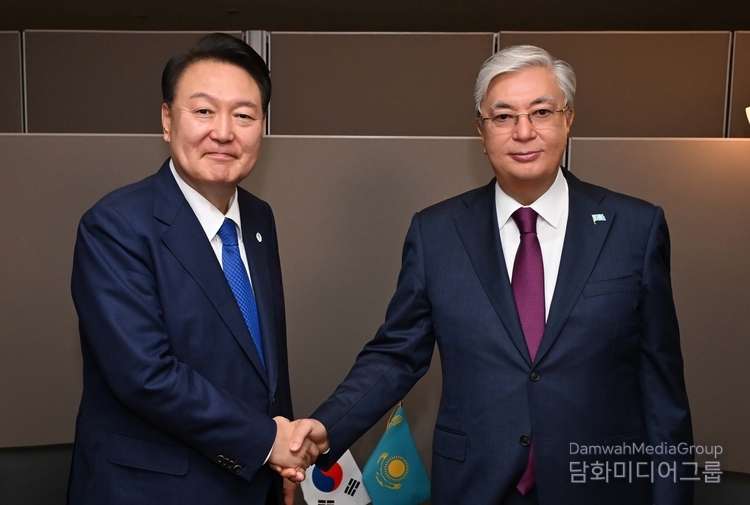
Noting that Kazakhstan boasts significant reserves of oil, natural gas, and coal, the ambassador said, “Korean companies can see opportunities for investment in exploration, production, and infrastructure development, leveraging their expertise in energy-related technologies and services.”
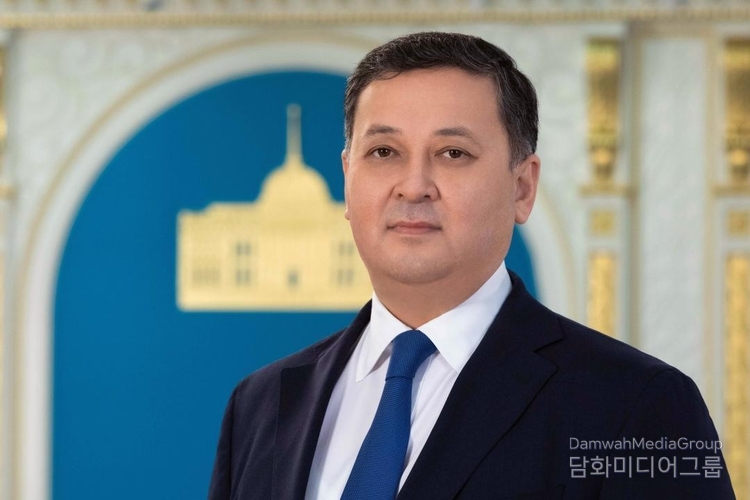
He said, “Moreover, Kazakhstan's focus on infrastructure development aligns well with Korean investors' capabilities in construction, engineering, and project management. From roads and railways to ports and airports, Kazakhstan's ambitious infrastructure projects provide a fertile ground for Korean companies to participate in large-scale developments, driving economic growth and fostering mutually beneficial partnerships between the two nations.”
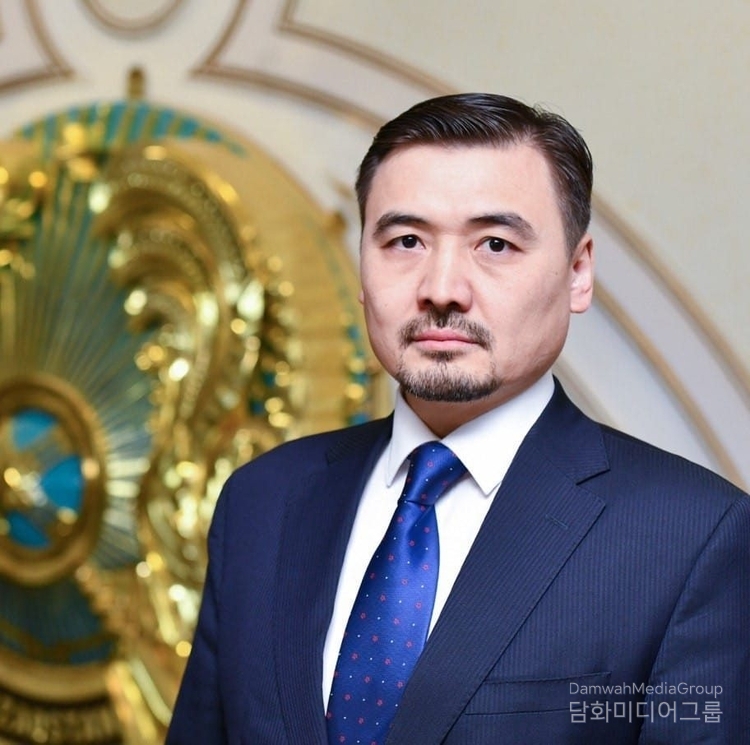
Commenting that Kazakhstan is a vast country located in the heart of Eurasia, Amb. Arystanov said, “Our land is known for its hospitality, rich and diverse culture, and astonishingly beautiful nature. Almaty is the cultural and vibrant capital covered with Tian Shan mountains. Locations like the Kok Tobe Hill, Panfilov Park, Green Bazaar, and various museums will walk you through Kazakhstan’s cultural scenes and local flavors.”
He continued to say, “Within a 200-kilometer radius of Almaty, tourists can discover a diverse array of landscapes, from tranquil lakes and winding rivers to majestic mountains, vast deserts, and captivating sand dunes, offering a rich tapestry of natural wonders to explore.”
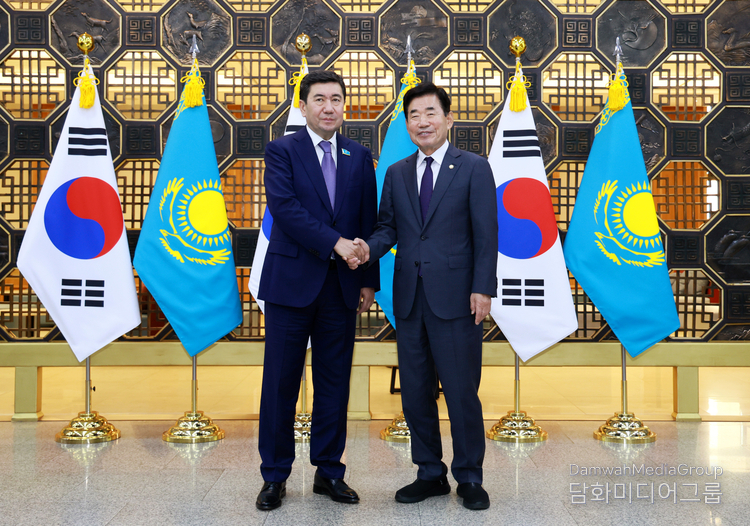
The following is the full-text of the Diplomacy Journal’s interview with Amb. Nurgali A. Arystanov of Kazakhstan to Korea.
Question: Diplomatic relations between Kazakhstan and South Korea were officially formed in 1992. How has the relationship developed over the period?
Answer: Ever since diplomatic relations were established between South Korea and Kazakhstan on January 28, 1992, our nations have been crucial partners to each other, cooperating in various fields. Kazakhstan and South Korea share common positions on various global issues. The strategic partnership established in 2009 is another confirmation of the two countries’ commitment to each other. The Presidents of the two countries visited each other 6 times, which proves the high frequency of meetings and contacts at the highest level.
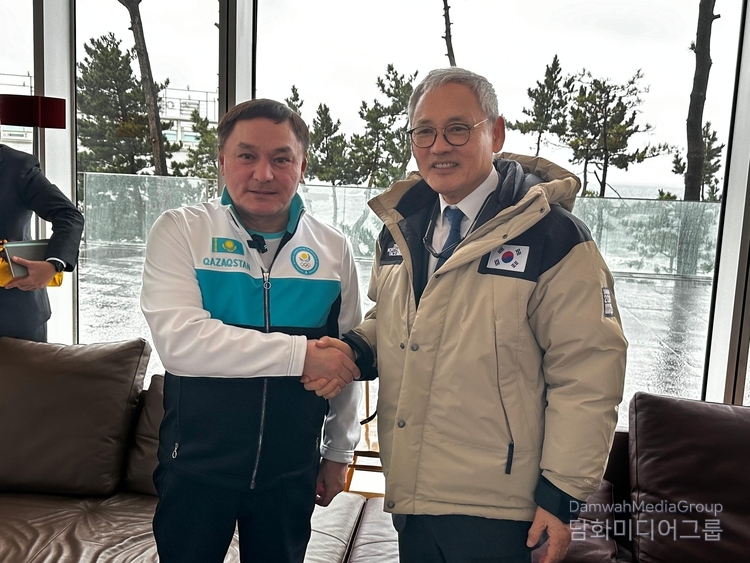
On August 16-17, 2021, His Excellency President Kassym-Jomart Tokayev became the first foreign president to visit Seoul since the start of the pandemic. During this historic visit, the two Presidents adopted a Joint Statement and elevated the level of relations to an enhanced strategic partnership.
Contacts at the highest levels between the two countries continue to be robust, as evidenced by the visits and meetings of top leadership. For instance, on September 20, 2023, President Tokayev and President Yoon met on the margins of the UN General Assembly and discussed ways to advance the Kazakh-Korean constructive cooperation further. The meeting provided a powerful boost to bilateral ties and resulted in an exchange of important visits.
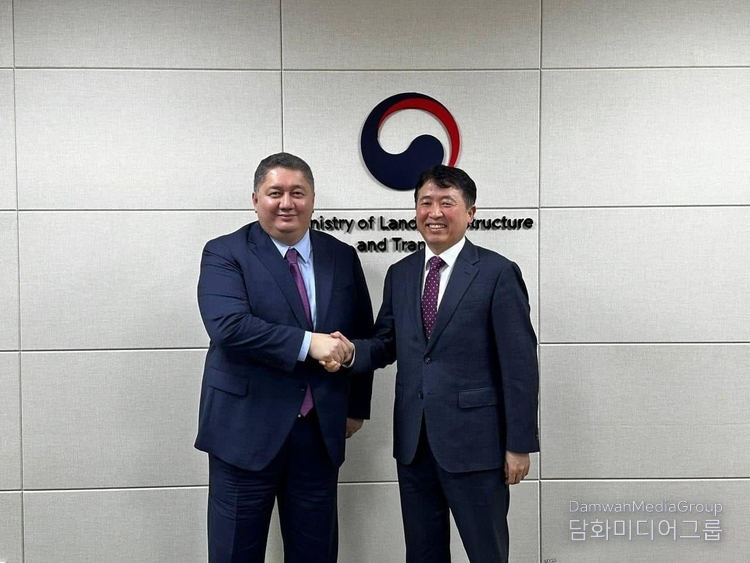
The foreign ministers also frequently exchange high-level visits. Foreign Minister H.E. Park Jin’s visit to Astana and Almaty on June, 2023 provided an excellent political framework for all encompassing development of multifaceted enhanced strategic partnership between Kazakhstan and Korea. Especially friendly and productive were his call on H.E. President Kassym-Jomart Tokayev and bilateral talks with H.E. Foreign Minister Murat Nurtleu.
Today, Korea is 6th largest investor and 4th largest trade partner for Kazakhstan. In 2023, the number of Korean tourists traveling to Kazakhstan more than doubled. We are now working on creating more conducive conditions for people-to-people ties.
For instance, recently the Vice Minister of Transport of Kazakhstan Talgat Lastayev visited South Korea and met with Deputy Minister of Land, Infrastructure, and Transport of the Republic of Korea, Yoonsang Lee, in Sejong. They discussed the ways to increase the frequency of flights between Kazakhstan and Korea, and adding new destinations to the existing routes. Both sides agreed to elevate the aviation cooperation to the next level by continuing regular aviation consultations.
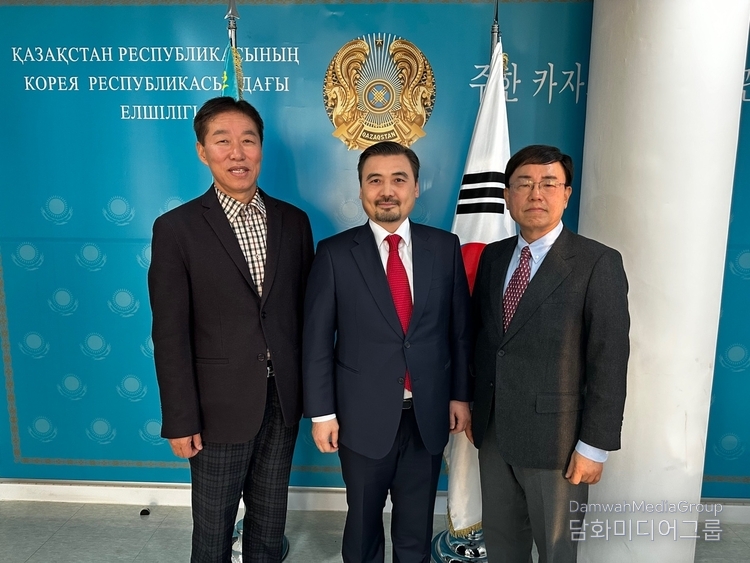
Additionally, Talgat Lastayev held meetings with the executives of T'Way and the Sirius Airlines and discussed issues of cooperation.
On January 20, 2024, Minister of Tourism and Sports Ermek Marzhikpayev met with Minister of Culture, Sports and Tourism Yu In-Chon and discussed the main directions for developing mutual cooperation between two countries, strengthening ties and exchanging experience in the field of sports, tourism and sports pharmacology.
In September 2023, Mayor of Almaty Erbolat Dossayev visited South Korea and held bilateral meeting with Seoul’s Mayor Oh Se Hoon. During the meeting Mayor Dossayev highlighted Almaty’s robust transportation links and convenient accessibility to Seoul, facilitating closer bilateral ties.
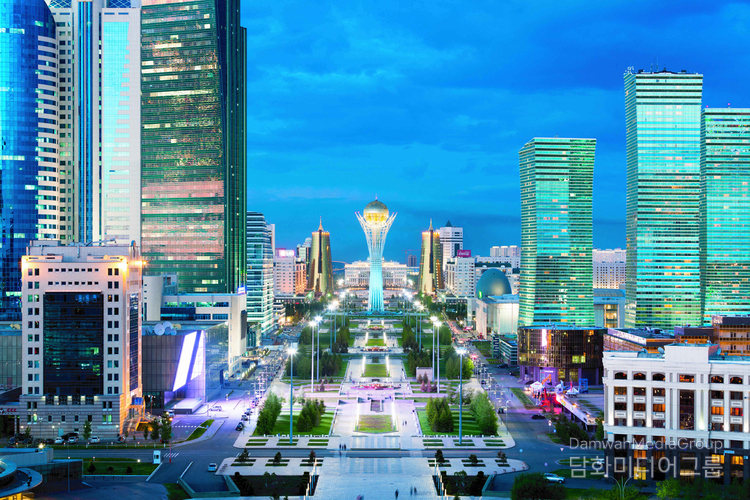
We collaborate with South Korea within the framework of various multilateral initiatives. One such platform is the Central Asia – Republic of Korea Cooperation Forum (informally known as C5+K). It brings together Central Asia and Korea on such priorities as political consultations, commercial and investment engagements including on energy, mineral resources, connectivity, smart waters, as well as people-to-people times with the focus on culture, tourism and education. Since its launch in 2007, the platform has matured and has its own active Secretariat since 2017. Its annual meeting is held at the ministerial level and provides a powerful impetus to all directions of cooperation. The next Forum is to be hosted by Foreign Minister H.E. Cho Tae-yul in 2024.
On September 19, 2023, the inaugural Korea-Central Asia Parliamentary Speakers' Conference was held in Seoul to discuss cooperation in areas of mutual interest. Chairman of the Mazhilis, Yerlan Koshanov, expressed his anticipation for the conference to serve as a foundation for developing relations among the six participating countries. The Chairman of the Mazhilis also held bilateral negotiations with the Speaker of the National Assembly of the Republic of Korea, Kim Jin-pyo and the Prime Minister of the Republic of Korea Han Duck Soo.
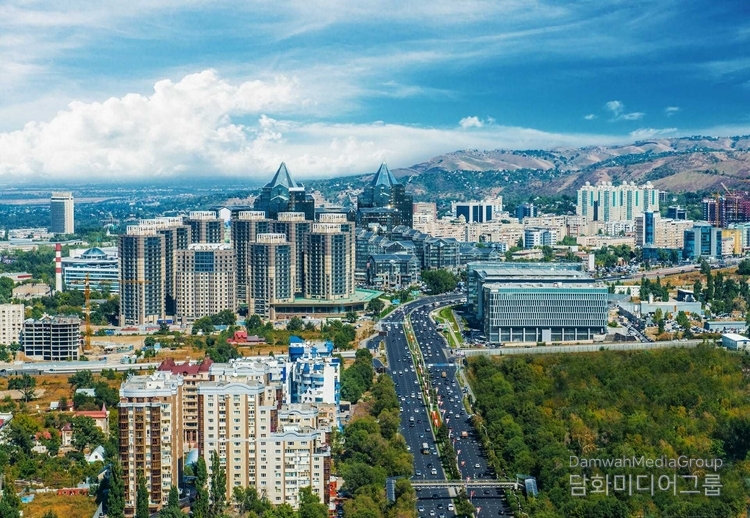
On November 1, 2023, Deputy Prime Minister and Foreign Minister Murat Nurtleu participated in the 16th meeting of the South Korea-Central Asia Cooperation Forum in Ashgabat. On the forum’s sidelines, Minister of Foreign Affairs Nurtleu met with South Korea’s Minister of Foreign Affairs Park Jin to discuss prospects of bilateral and multilateral cooperation. The intensification of contacts point to the growing multi-faceted cooperation between our two countries in various spheres.
Q: Please introduce the National Day of Your Excellency's wonderful country.
A: The Republic Day in Kazakhstan, which we celebrate on October 25, commemorates the declaration of sovereignty of the Kazakh SSR from the Soviet Union. It is one of the most significant dates in the history of our country. On this day, the Declaration of Independence was adopted, which declared the political and legal foundations of Kazakhstan as an independent state.
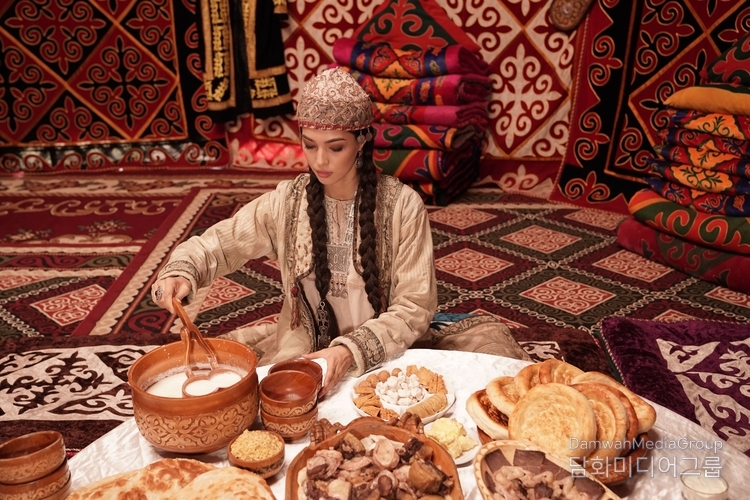
The Republic Day serves as a time for reflection and provides a confidence on the success of the Republic towards progress and prosperity. Today, Kazakhstan has emerged as a vibrant nation, a responsible member of the world community with the dynamic economy. On this day, we cherish and celebrate the accomplishments of Kazakhstan along with our friends and partners such as the Republic of Korea.
Major celebrations across the city include performances, concerts, exhibitions, and parades that showcase our country’s heritage and cultural diversity.
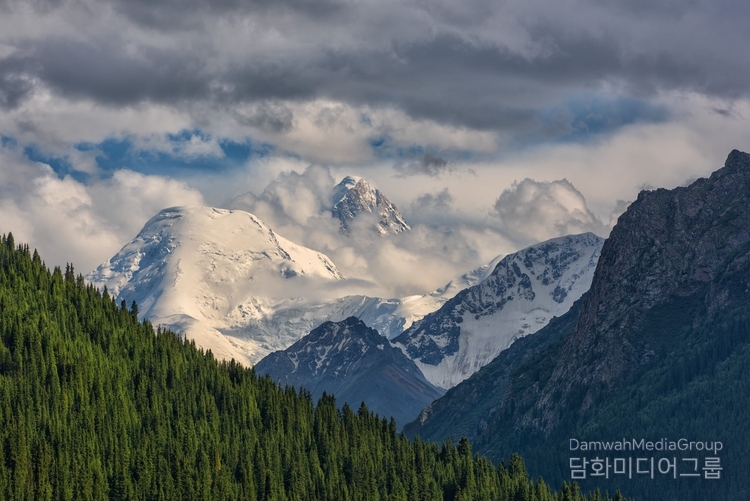
Q: What is the present volume of bilateral trade between Kazakhstan and South Korea? Do you have any idea to boost bilateral trade between the two countries in the future?
A: In 2023, the bilateral trade amounted to over 6 billion dollars, and the turnover is set to increase in the future, with the two countries having agreed to collaborate on supply chains for essential minerals and infrastructure projects. That makes South Korea Kazakhstan’s 4th largest trade partner.
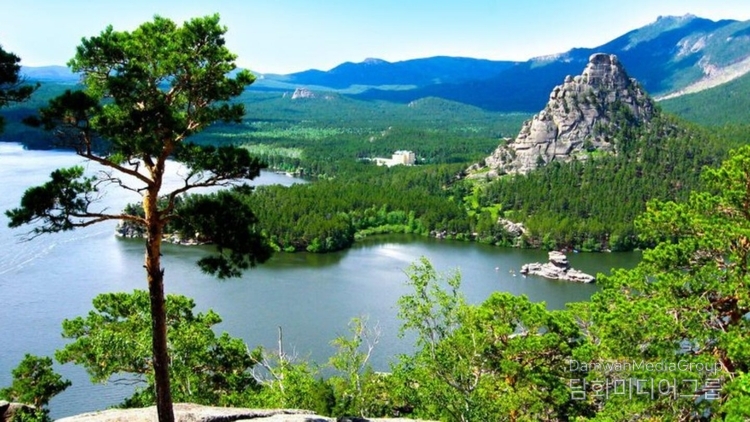
Kazakhstan exports various products to South Korea, including minerals and metals, energy resources, agricultural products, chemicals and petrochemicals. At the same time, Kazakhstan imports various goods from South Korea, including electronics, technology, vehicles, machinery, plastics, chemicals, textiles, and apparel. Overall, the trade between Kazakhstan and South Korea encompasses a range of products, reflecting the diverse economic activities of both countries.
Minister of Trade, Industry, and Energy, Ahn Dukgeun, in his capacity as the Minister for Trade, led a delegation to Kazakhstan in October 2023, accompanied by representatives from prominent Korean entities including KOTRA, KIAT, KHNP, Samsung, Kia, SK, Doosan, Hanwha Energy, and KCC.
During the visit, he held several official meetings with the leadership of Kazakhstan, acknowledging the strengthening bilateral relations and highlighting Kazakhstan's significant role, which constitutes 70.8% of Korea’s trade with Central Asia. Moreover, a bilateral MoU on Trade and Investment was signed during the visit. Additionally, Minister Ahn toured the facilities of BAKAD and Korea Expressway’s branch office as part of his itinerary.
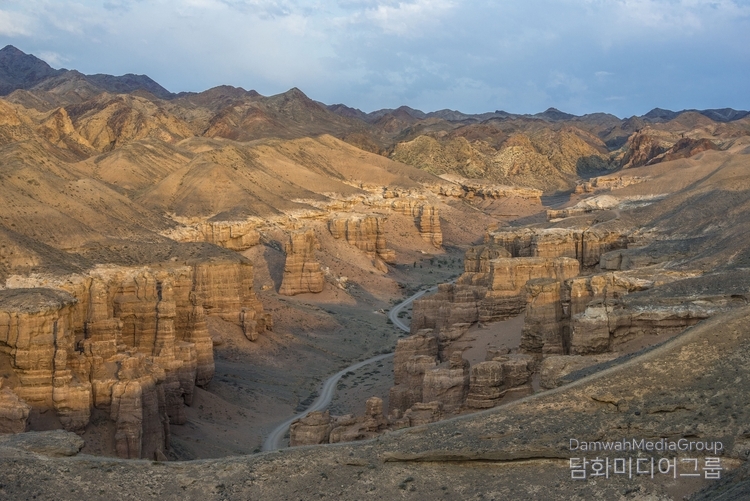
Q: In Kazakhstan, what kinds of industrial sectors are attractive to Korean investors?
A: Korean investors are drawn to several industrial sectors in Kazakhstan due to the country's abundant resources and strategic location. One prominent area of interest is the energy sector, where Kazakhstan boasts significant reserves of oil, natural gas, and coal. Korean companies see opportunities for investment in exploration, production, and infrastructure development, leveraging their expertise in energy-related technologies and services.
Additionally, Kazakhstan's mining and metals industries present lucrative prospects for Korean investors. With rich deposits of minerals like copper, iron ore, uranium, and rare earth metals, Kazakhstan offers opportunities for partnerships in mining operations and downstream processing. Korean firms can contribute their advanced mining technologies and environmentally sustainable practices to enhance efficiency and productivity in these sectors.
Moreover, Kazakhstan's focus on infrastructure development aligns well with Korean investors' capabilities in construction, engineering, and project management. From roads and railways to ports and airports, Kazakhstan's ambitious infrastructure projects provide a fertile ground for Korean companies to participate in large-scale developments, driving economic growth and fostering mutually beneficial partnerships between the two nations.
Kazakhstan’s focus on digital transformation, fintech and industrial development offers rich opportunities for investments, setting up R&D centers and joint projects. With the total of FDIs worth 9.4 billion dollars, Korea is Kazakhstan’s 6th largest foreign investor.
On September 1, 2023, President Tokayev delivered his state-of-the-nation address titled “Economic Course of a Just Kazakhstan”. The main focus of the address was a new economic course for Kazakhstan. The President emphasized the importance of the transport and logistics, industry, development of drones, digital transformation, better use of artificial intelligence as well as developing a green and sustainable economy. Recently, chairing the extended Government meeting on February 7, President Tokayev put forward an ambitious goal of achieving 6% GDP growth as well as increasing opportunities for entrepreneurs and perfecting business environment.
He also called for efficient use of water resources, developing agriculture, upgrading energy system and improving medical insurance. In 2023, Kazakhstan demonstrated the resilience by adapting to new conditions and achieving a robust economic growth of 5.1%. All these areas could become priority directions for Kazakh-Korean trade and economic cooperation.
It should be noted that Kazakhstan’s new economic course aligns with South Korea’s National Security Strategy of the Republic of Korea that was issued in June 2023. With South Korea’s emphasis on economic development, industrial diversification, energy, education, tourism, digital technology, and labor as key areas for cooperation with Central Asia, we can see that Kazakhstan and South Korea share common interests and priorities, which opens opportunities of enhanced cooperation between the two nations.
Q: Which Korean companies are actively doing business in your country?
A: Several South Korean companies have established successful operations in Kazakhstan, contributing to the country's economic development. Notable examples include Samsung Electronics, Hyundai, Kia, Lotte Confectionary, and POSCO, among others. Currently, there are approximately 740 companies operating with Korean capital in Kazakhstan, spanning a diverse range of sectors.
Korean companies in Kazakhstan are engaged in various industries, including oil and gas, automobile manufacturing, engineering, construction, finance, electronics, and confectionery. Samsung Electronics, for instance, has expanded its presence and exports a significant number of home appliances from Kazakhstan. Hyundai and Kia have manufacturing facilities producing popular models such as the Hyundai Accent, Creta, and KIA Sportage, contributing to the local automotive industry. Also, Hyundai has recently signed a new contract with the Kazakhstan government to build a complete knock-down assembly plant in the Kostanay region.
Lotte Confectionary operates factories in Kazakhstan, producing renowned chocolate brands like "Kazakhstan," which enjoy global recognition. Additionally, POSCO, as one of the earliest Korean investors, is involved in titanium production and exports its products worldwide. These Korean investments and operations in Kazakhstan signify the strength of bilateral economic ties and the potential for further collaboration and growth in various sectors.
The collaboration between BGF Retail and Kazakhstan’s Shin-Line is another example of the successful partnership between our nations. First CU convenient stores were launched on March 6, 2024 in Almaty. It is an excellent example of expansion and the potential of the Kazakhstani convenience store market that aligns with the mutual benefits of cooperation and investment between Kazakhstan and South Korea.
The Korea National Oil Corporation (KNOC) has been effectively conducting its operations in Kazakhstan's energy sector. With a strong track record of success, KNOC has been involved in various activities such as exploration, production, and development of oil and gas resources in Kazakhstan. Through its efficient management and strategic initiatives, KNOC has contributed to the growth and development of the energy industry in Kazakhstan, fostering economic cooperation between South Korea and Kazakhstan in the energy sector.
Doosan Enerbility has successfully established its presence in Kazakhstan, recently securing a significant project to build a combined cycle power plant in Shymkent, a southern industrial city. The company won the 1.15 trillion won ($882 million) deal to construct the 1,000-megawatt plant using the engineering, procurement, and construction (EPC) method. Scheduled for completion by August 2026, this project highlights Doosan Enerbility's commitment to delivering reliable and efficient energy solutions in Kazakhstan.
Kazakhstan offers a range of investment incentives to attract both domestic and foreign investors. These incentives include tax exemptions for the first three years, customs duty exemptions, simplified administrative procedures, and access to various support measures. The government has also implemented legislative reforms to create a more favorable investment climate, including the gradual adoption of OECD standards and the establishment of fair and transparent regulations. Additionally, Kazakhstan provides equal conditions for both foreign and domestic investors, with special support measures available for large-scale projects in priority sectors, such as deep metal processing, oil, gas, coal chemistry, heavy engineering, automotive components, and uranium enrichment.
Q: What tourist attractions do you want to recommend to Korean tourists? Do you have any government programs to attract foreign tourists, including Koreans, to Kazakhstan?
A: Kazakhstan is a vast country located in the heart of Eurasia. Our land is known for its hospitality, rich and diverse culture, and astonishingly beautiful nature.
Almaty is the cultural and vibrant capital of Almaty covered with Tian Shan mountains. Locations like the Kok Tobe Hill, Panfilov Park, Green Bazaar, and various museums will walk you through Kazakhstan’s cultural scenes and local flavors.
Within a 200-kilometer radius of Almaty, tourists can discover a diverse array of landscapes, from tranquil lakes and winding rivers to majestic mountains, vast deserts, and captivating sand dunes, offering a rich tapestry of natural wonders to explore.
While you are in Almaty, do not miss the opportunity to walk around the Sharyn Canyon, which is often referred to as the “Grand Canyon of Central Asia.” Red rock formations of the canyon were formed by the Sharyn River over millions of years.
The Tian Shan Mountains that surround Almaty nestle Big Almaty Lake and its beautiful panoramic viewpoints. The Big Almaty Lake, with its stunning turquoise lake, rocky crests and pine forests, offers a peaceful escape from the city. Contemplating reflections of the surrounding mountains mirrored in the crystal-clear waters of the Big Almaty Lake is an unforgettable experience.
If you need a more active holiday, the Shymbulak Ski Resort is your go-to location. It is a popular destination for skiing and snowboarding in the winter months of Almaty, nestled amidst the Tian Shan mountains.
Astana, the capital city of Kazakhstan, is renowned for its modern architecture and iconic landmarks such as the Baiterek Tower. The city boasts a wide array of cultural attractions, including the Astana Opera, providing visitors with a rich cultural experience.
250 km away from Astana lies the Burabay National Park, an area of an astounding combination of lakes, forests, and rock formations, with various outdoor activities such as hiking, boating, and horseback riding.
If you are looking for historical and cultural experiences on a larger scale, the Sarayshyk and Sauran cities are your go-to places. Sarayshyk is a 13th-century founded by Genghis Khan’s grandson, Batu Khan, and Sauran is a 10th-century fortified city that served as a prominent Silk Road trading post. This is especially important to visit these historical site this year when we celebrate 800th anniversary of Jochi Ulus.
Altyn Emel National Park is an astounding natural reserve known for its alluring landscapes and locations like Singing Dunes, where sand emits a melodic hum, and Besshatyr Burial Mounds, a complex of tombs of ancient nomadic civilizations.
It should be mentioned that, according to the results of 2023, the tourist flow from South Korea to Kazakhstan more than doubled compared to previous year. There are 11 flights between Almaty and Seoul (6 flights by Air Astana and 5 flights by Asiana Airlines). Moreover, the sides have recently agreed to increase the number of flights between Almaty and Seoul, resume flights between Astana and Seoul, etc.
Q: Are there any programs of Kazakhstan planning to hold this year (2024)?
A: One of the most significant events of 2024 will be the 5th World Nomadic Games which will be held from September 8th to September 14th. The event is expected to host about 4 thousand participants from more than 100 countries and attract more than 100 000 tourists. I would also like to note that the Korean wrestling “Ssireum” was included in the program.
On June 13-14, the Astana International Forum will bring together heads of State, international organizations, and global companies. This platform for dialogue comes to us at a time of growing polarization and geopolitical division. It makes efforts to address key global challenges. This year’s Astana International Forum is anticipating the participation of over 5000 delegates from more than 50 countries.
Additionally, the International Exhibition of Technologies for Business, Business Technology Expo 2024, will be held in Astana from April 3 to 5, at the EXPO International Exhibition Center. It will introduce new B2B business technologies in Kazakhstan. Overall, the trade fair will introduce technical solutions for business of any scale and industry, be it marketing innovations, IT tools, process automation, digital platform, etc.
Kazakhstan Machinery Fair 2024 is another important event for machine builders in Kazakhstan and Central Asia that will be hold on April 24-26, 2024 in EXPO IEC. It is an industry-specific exhibition that brings together key players and experts in machinery and metalworking. The exhibition offers a unique venue for sharing experience, entering the partnership agreements and promoting advanced solutions in this industry.
President Tokayev underlined that interest in Central Asia is growing significantly worldwide, leading to an increased demand for the C5+ dialogue platform. Therefore, Kazakhstan is expected to host the next Consultative Meeting of the Heads of State of Central Asia this year.
This year also marks the 800th anniversary of the formation of the Ulus of Jochi, also known as the Golden Horde or the Kipchak Khanate. Kazakhstan will host a number of events to celebrate this important anniversary.
8. What are the most important festive days in your country? Please elaborate.
As a country with a rich and diverse cultural heritage, Kazakhstan celebrates several festive days. Nauryz is one of the most popular and celebrated holidays in Kazakhstan. It marks the New Year and the arrival of spring. Nauryz is celebrated on March 21st, and on this special day, families gather for cultural activities and cook national dishes.
The Independence Day, celebrated on December 16th, is a patriotic holiday marking Kazakhstan’s Declaration of Independence from the Soviet Union in 1991. Events like parades and fireworks highlight the country’s achievements and awaken national pride.
The Constitution Day is celebrated on 30th of August, and it honors the adoption of Kazakhstan’s Constitution in 1995, which is an opportunity to celebrate the principles of democracy, the rule of law, and human rights in Kazakhstan’s Constitution.
I would also like to mention that the International Day of Action Against Nuclear Testing, celebrated on August 29th, is also an important day for Kazakhstan. It commemorates the closure of one of the largest nuclear testing grounds in the world, the Semipalatinsk Nuclear Test Site. As one of the first nations that gave up nuclear weapons, Kazakhstan is known and praised for promoting global efforts to prevent nuclear proliferation and advocating for nuclear disarmament.
There are many festivities that add vibrancy to family life and bring together relatives, friends, and colleagues to celebrate the joys and achievements of the nation and its people.
